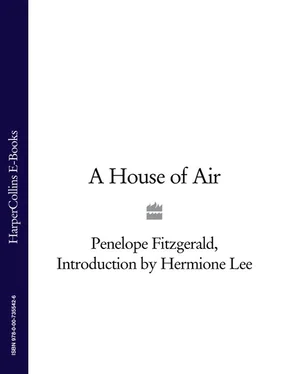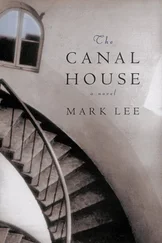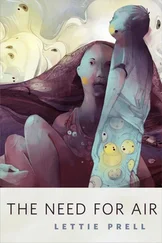A House of Air
Selected Writings
Penelope Fitzgerald
Edited by Terence Dooley with Mandy Kirkby and Chris Carduff Introduction by Hermione Lee

For Valpy, Tina and Maria and in memory of Desmond, Mary and Evoe, and Mops
Cover Page
Title Page A House of Air Selected Writings Penelope Fitzgerald Edited by Terence Dooley with Mandy Kirkby and Chris Carduff Introduction by Hermione Lee
Dedication For Valpy, Tina and Maria and in memory of Desmond, Mary and Evoe, and Mops
Introduction
Editor’s Note
PART I Master-Spirits
JANE AUSTEN Emma’s Fancy
WILLIAM BLAKE The Unfading Vision
SAMUEL TAYLOR COLERIDGE Talking Through the Darkness
SARAH ORNE JEWETT The News from Dunnet Landing
GEORGE ELIOT The Will to Good
MRS OLIPHANT The Heart and Soul of Carlingford
THE VICTORIANS Called Against His Will
WILLIAM MORRIS His Daily Bread
ARTS AND CRAFTS Lasting Impressions
RHYME AND METRE Obstacles
M. R. JAMES Monty and His Ghosts
THE WORLD OF PUNCH Thin, Fat, and Crazy
YEATS AND HIS CIRCLE A Bird Tied to a String
NEW WOMEN AND NEWER Dear Sphinx
BLOOMSBURY A Way Into Life
MODERNS AND ANTI-MODERNS The Great Encourager
THE FORTIES AND AFTER What’s Happening in the Engine Room
PART II Writers and Witnesses 1980-2000
WRITERS A Secret Richness
WITNESSES Grandmother’s Footsteps
PART III Places
THE MOORS
PART IV Life and Letters
CURRICULUM VITAE
SCENES OF CHILDHOOD Well Walk
ASPECTS OF FICTION Following the Plot
WHY I WRITE
How I WRITE: DAISY’S INTERVIEW
PART V Coda
LAST WORDS
INDEX
About The Author
Praise
By the same author
Copyright
About the Publisher
INTRODUCTION by Hermione Lee
Because Penelope Fitzgerald’s genius as a writer of fiction lay so much in reticence, quietness, and self-obliteration, her admirers will come to her posthumously collected nonfiction with intense curiosity, searching for her likes and dislikes, her preferences and opinions and feelings, in these wonderfully sympathetic, curious, and knowledgeable pieces on writing, art, craft, places, history, and biography. And, in a generous selection of twenty years’ worth of essays and reviews, we do find (especially in the last section, on ‘Life and Letters’) Fitzgerald’s point of view very plainly set out. She believed, as a novelist, that (as she said to me in an interview in 1997) ‘you should make it clear where you stand.’ Here, speaking of E. M. Delafield, she asks: ‘What is the use of an impartial novelist?’ She is forthright and candid here about her moral position in her novels: ‘I have remained true to my deepest convictions—I mean to the courage of those who are born to be defeated, the weaknesses of the strong, and the tragedy of misunderstandings and missed opportunities which I have done my best to treat as comedy, for otherwise how can we manage to bear it?’ ‘Everyone has a point to which the mind reverts naturally when it is left on its own. I recalled closed situations that created their own story out of the twofold need to take refuge and to escape, and which provided their own limitations. These limitations were also mine.’ Such utterances throw a revealing light on the novels. But they are also rather cryptic: she expects us to understand what she means by the ‘point’ the mind ‘reverts to naturally’; she doesn’t tell us what she thinks her limitations are. She has a way of saying strange, challenging, unsettling things in a matter-of-fact way, as if these were self-evident truths. Her manner is plai n and mild; her prose never shows off. She is practical and vivid and clear and exact about her subject, and leads you right to the heart of the matter: the feeling of a novel, the nature of a life, the understanding of how something or someone works, the sense of a place or a time. All the same, when you get there, you may still feel much left unsaid or unexplained.
There is often that sense of something withheld in her novels, as in the mysterious forest encounter in The Beginning of Spring , or the meaning of the story of the ‘blue flower,’ never completed, never spelled out. As Fritz tells Sophie in that novel: ‘If a story begins with finding, it must end with searching.’ At the end of the story ‘Desideratus’ (in her posthumously published collection The Means of Escape ) the boy who has lost his keepsake and been on a strange journey to recover it, is told: ‘You have what you came for.’ But his quest journey remains baffling and mysterious. And she doesn’t care much for explanations. In that 1997 interview she told me (as she often told interviewers) that her books were so short because she didn’t like to tell her readers too much: she felt it insulted them to over-explain. She says here in an essay on Charlotte Mew (which preceded her moving and eloquent biography of the poet) that she is a writer who ‘refuses quite to be explained.’ She is amused by Byron’s impatience with Coleridge’s metaphysics: ‘I wish he would explain his explanation.’ She likes readers to have their wits about them, and she likes exercising her own, as with her pleasure in Beckett’s dialogue:
What a joy it is to laugh from time to time, [Father Ambrose] said. Is it not? I said. It is peculiar to man, he said. So I have noticed, I said…Animals never laugh, he said. It takes us to find that funny, I said. What? he said. It takes us to find that funny, I said loudly. He mused. Christ never laughed either, he said, as far as we know. He looked at me. Can you wonder? I said.
She comments: ‘This kind of dialogue shows us what we could say if we had our wits about us, and gives us its own peculiar satisfaction.’
Beckett’s hollow laughter is a surprising preference for Fitzgerald, who is not herself a player with words or a lugubrious comic. And there are other surprises here. There are pieces on writers we might have guessed she would like—Sarah Orne Jewett for her deep, quiet knowledge of a small community, its silences, pride, and cruelties; John McGahern for his poetic realism, his attention to ‘small acts of ceremony,’ and his ‘magnificently courteous attention to English as it is spoken in Ireland’; William Trevor for his empathy with the innocent and the dispossessed; Olive Schreiner for her strangeness, dreaming, and courage. But there are others she champions more unexpectedly: Roddy Doyle, Carol Shields, D. H. Lawrence, Joyce (even Finnegans Wake ). This is not a narrow, prissy, or parochial critic.
At the heart of her intellectual passions is a political commitment to an English tradition of creative socialism, a vision at once utopian and practical, of art as work and of the usefulness of art to its community. Her English heroes are Blake, Ruskin, Burne-Jones, William Morris, Lutyens. She is inspired by Morris’s dedication to ‘the transformation of human existence throughout the whole social order.’ (Though, as in The Beginning of Spring , she sees the comedy and pathos of Utopianism too, manifested in the early twentieth century in ‘Tolstoyan settlements, garden cities and vegetarianism tea-rooms, Shelley’s Spirit of Delight…and the new Rolls-Royce.’) She deeply admires Morris’s painful mixture of neurosis, work ethic, resolution, and struggle for self-control. But she likes her idealists best at their most down-to-earth: Ruskin on the joy of shelling peas (‘the pop which assures one of a successful start, the fresh colour and scent of the juicy row within…’) or the cunning arrangements at Burne-Jones’s studio at The Grange: ‘the huge canvases could be passed in and through slits in the walls, there were hot-water pipes, and a skylight so that it could be used for painting with scaffolding.’ The work of Morris that most delights her is the Kelmscott Press and his experiments with typography.
Читать дальше













